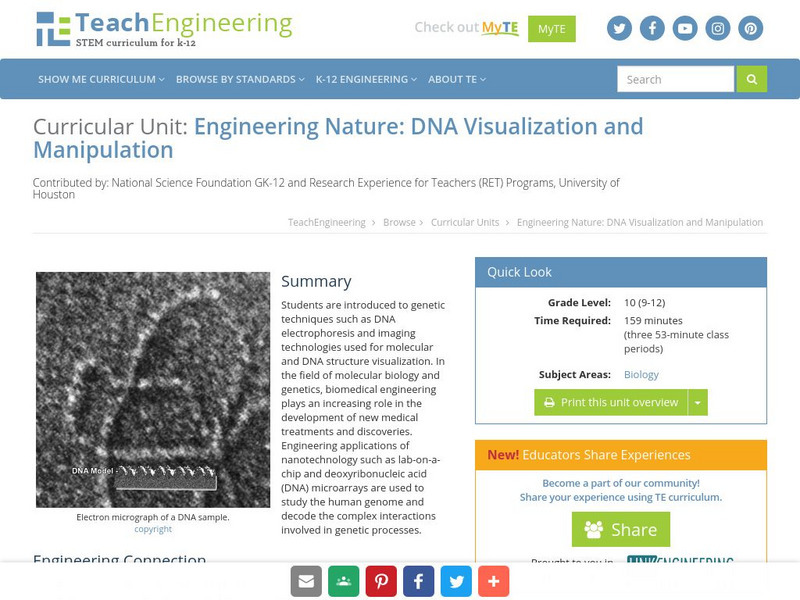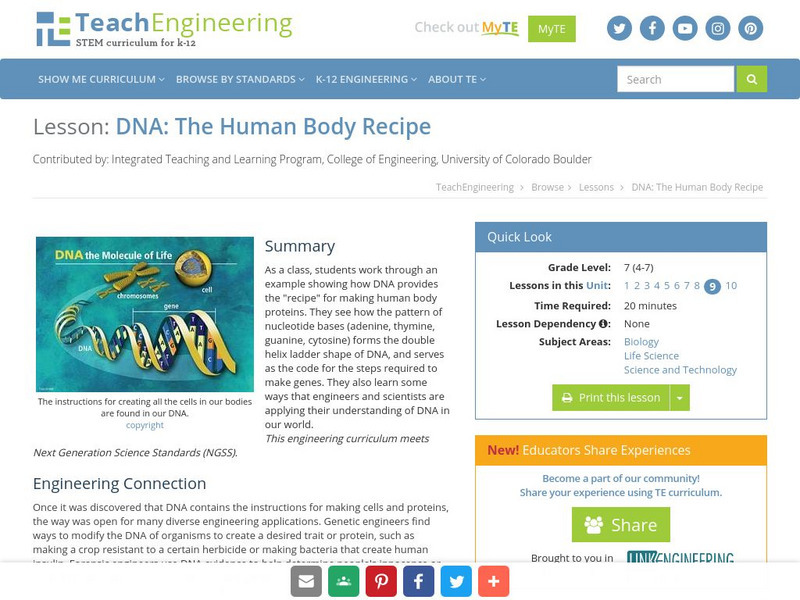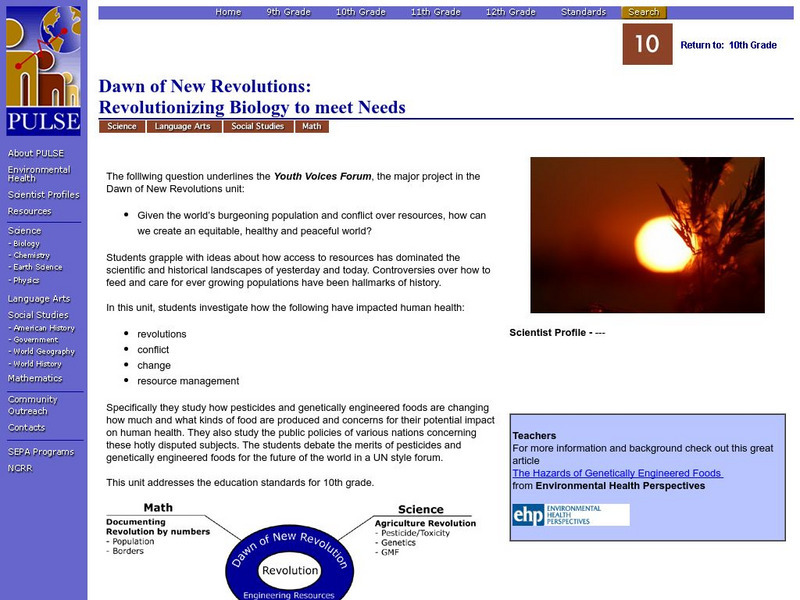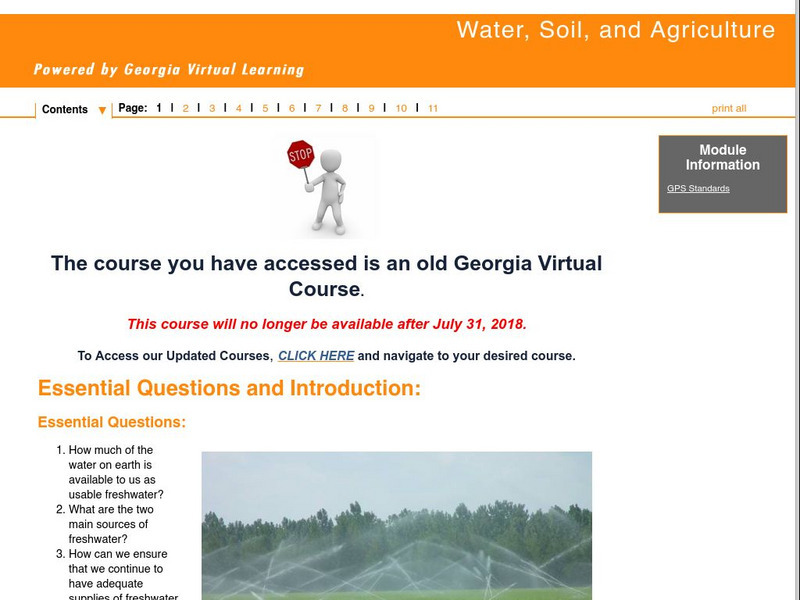PBS
Pbs Learning Media: On Human Cloning
Three cloning experts share their opinions of cloning in these interviews from NOVA: "18 Ways to Make a Baby."
TeachEngineering
Teach Engineering: Biomedical Engineering and the Human Body
Human beings are fascinating and complex living organisms-a symphony of different functional systems working in concert. Through a 10-lesson series with hands-on activities students are introduced to seven systems of the human...
TeachEngineering
Teach Engineering: Engineering Nature: Dna Visualization and Manipulation
Students are introduced to genetic techniques such as DNA electrophoresis and imaging technologies used for molecular and DNA structure visualization. In the field of molecular biology and genetics, biomedical engineering plays an...
TeachEngineering
Teach Engineering: What's Dominant?
In a class discussion format, the teacher presents background information about basic human genetics. The number of chromosomes in both body cells and egg and sperm cells is covered, as well as the concept of dominant and recessive...
TeachEngineering
Teach Engineering: Dna: The Human Body Recipe
As a class, students work through an example showing how DNA provides the "recipe" for making our body proteins. They see how the pattern of nucleotide bases (adenine, thymine, guanine, cytosine) forms the double helix ladder shape of...
Other
Canadian Institutes of Health Research: Human Stem Cell Research [Pdf]
A recent study in which the authors examined the health and ethical issues related to human stem cell research. As a result of this study, Canada did allow human stem cell research to proceed. The report is in PDF format.
Science Education Resource Center at Carleton College
Serc: Human Cloning: Is It Biological Plagiarism?
This activity guides students to learn the science behind cloning, explore the benefits and consequences of human cloning, and communicate their knowledge and points of view.
University of Arizona
Pulse: Dawn of New Revolutions
A cross curricular unit focusing on how much and what kinds of foods are produced because of pesticides and genetically engineered foods. Students will investigate the impact on humans due to the new technology in food production. Topics...
Other
J. Craig Venter Institute
A non-profit research institute that specializes in the capture of genome information on all forms of life, including human. Information is very scholarly.
PBS
Pbs: Fact of Fiction
At this site from PBS you can challenge yourself with this quiz to see if you know what is true and what is false in genetic and reproductive technology. You'll be surprised by some of the things that we are currently able to do with...
National Institutes of Health
National Center for Biotechnology Information: Education
This link has many tools to help understand the revolutionary sciences and discoveries in genetics.
American Institute of Biological Sciences
Action Bioscience: Designer Babies: Ethical Considerations
Ethical considerations are discussed in an article about the scientific ability to create "designer babies." Identify safety, moral use, effect on society, and whether it is for enhancement or therapy when humans have the option to...
PBS
Pbs Learning Media: Religion and Ethics Weekly: Dr. Francis S. Collins Interview
Read a discussion with Francis S. Collins, director of the Human Genome Project, who touches on the role that faith plays in his profession. Collins discusses the Human Genome Project and its goals and results, genetic disorders, and the...
BBC
Bbc: Gcse Bitesize: Mitosis and Cell Specialisation
This lesson focuses on cloning. Plants can make identical copies of themselves by asexual reproduction, for example by tubers and runners. Humans have been cloning plants for years and have recently started to develop techniques to clone...
Georgia Department of Education
Ga Virtual Learning: Water, Soil, and Agriculture
Students learn about the fundamental importance of water, soil, and agriculture in sustaining the human standard of living; and the heavy toll that current agricultural practices take on water and soil resources.













